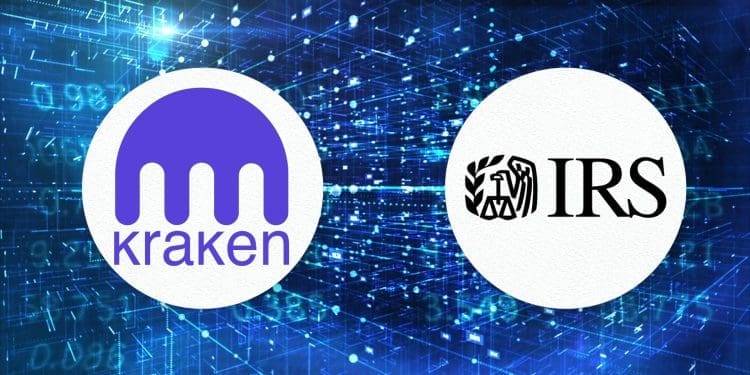- The IRS has gained access to trading data from major crypto exchanges like Kraken to identify traders who have not properly reported crypto gains/losses.
- Kraken was forced by a court order to share data on users who traded over $20,000 from 2016-2020, including names, birth dates, addresses, and trading history.
- With data from Kraken and other exchanges, the IRS aims to close the “tax gap” and crack down on potential tax evaders who have not reported crypto capital gains.
The Internal Revenue Service (IRS) is ramping up efforts to track down cryptocurrency traders who have not properly reported their trading activities. This comes after the agency gained access to trading data from major exchanges like Kraken.
Kraken to Share User Data With the IRS
Cryptocurrency exchange Kraken announced this week that it will be sharing data on tens of thousands of users with the IRS. Specifically, Kraken will provide information on users who made crypto transactions above $20,000 between 2016 and 2020. This includes names, dates of birth, addresses, and trading histories.
The move comes after a court order was issued in June, following a legal battle between Kraken and the IRS over privacy concerns. Ultimately, Kraken was forced to comply with the IRS demands. However, the company maintains that the court rejected the IRS’s request for more intrusive data like IP addresses and sources of wealth.
Other Exchanges Forced to Share Data
Kraken is not the first exchange that has had to share user data with the tax agency. In 2018, Coinbase was ordered to provide the IRS with information on certain users.
In 2020, the IRS gained access to records from crypto payments company Circle for customers who traded over $20,000 between 2016-2020. Crypto brokerage SFOX also had to share similar records in 2021.
The IRS Hunts Down Tax Evaders
The IRS is ramping up efforts to identify cryptocurrency users who have not properly reported trading gains and losses on their taxes. With access to historical trading data from exchanges, the agency can now cross-reference filings and look for discrepancies.
This crackdown aims to close the “tax gap” between taxes owed and taxes paid on cryptocurrency capital gains. The IRS treats crypto as property, meaning it is subject to capital gains tax when sold at a profit.
Conclusion
With the trove of user data gained from Kraken and other exchanges, the IRS is equipped to root out potential tax evaders in the crypto space. This serves as a reminder to traders to properly track and report any crypto-related investment gains and losses. Full compliance is essential as the IRS doubles down on enforcement in this emerging asset class.














